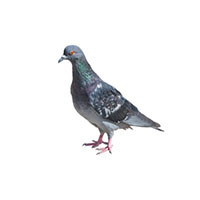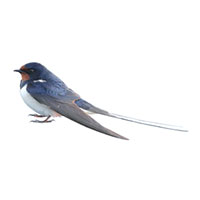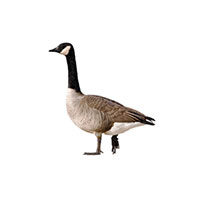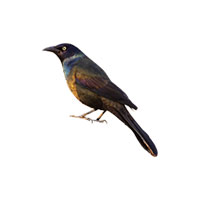Pigeons in Wisconsin
Although a pigeon’s natural food source is grain and seeds, they survive in towns and cities by scavenging processed food matter, especially food from trash cans.
Pigeon Habitat & Nesting
Pigeons like to shelter in seemingly inhospitable areas of tall buildings. They will make use of balconies, ledges, flat roofs, guttering, and loft spaces in particular, as they are capable of lifting damaged or loose roof coverings to force entry. The nest is flimsy, saucer-like in shape, and made of stems, and leaves.
Pigeon Mating & Life Cycle
Pigeons have two to three broods per year, with two eggs in each. There is a 17-19 day incubation period and then the young spend 35-37 days in the nest. Pigeons live 4-12 years.
Pigeon Infestations & Damage
Serious Diseases
Pigeons are carriers of diseases such as salmonella and psittacosis (commonly known as pigeon fancier’s lung).
Pigeon Droppings
Droppings provide the ideal environment for organisms causing diseases to thrive. Pigeon droppings and pigeon debris not only look unpleasant, but they can directly damage the structure of a building due to the concentration of uric acid found in droppings. Pigeon droppings can erode metal, stain wood, discolor paint, and damage stone and brickwork (tar-based roofing materials are particularly vulnerable to this type of erosion).
Loss of Customers
Large quantities of droppings and the presence of pigeons on properties could cause customers to turn away from businesses.
Other Pests
Drainage Problems
Nest debris and feathers can also block gutters and rainwater drainage systems, potentially leading to damage to your business from water penetration.
Pigeon Prevention & Control
Pigeon Prevention
One of the most successful long-term measures for pigeon control is the removal of their food source, however, in busy urban areas, this is not always practical. There is a range of pigeon deterrent solutions available for commercial properties, which could help to prevent pigeons from roosting and nesting on your property, including netting, spikes, or electrical deterrents.
Pigeon Control
Bird Control Services provides customized solutions to address bird concerns through removal, exclusion, and deterrence. Factors that determine the best method of control include an area of application, bird species, location, access. Spikes, netting, and electrical deterrents are the most commonly used solutions.
Bird services are limited to commercial clients.
Need help with Pigeons?
We'll call you! Leave your information below.
Pests Belong Outside!
Leave your information below and we will give you a call back.
"*" indicates required fields
*During normal business hours. After hours inquiries will be returned the next business day.






